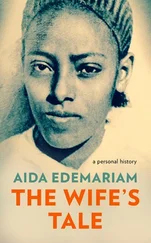My dear Father, We reached Paris Sunday afternoon and are now in the Rue de Rivoli, the best situation here…Paris is delightful. I never was so much struck with anything in the whole course of my life…I expected another London but there are no points of resemblance. I did not expect in so short a distance to have met such a contrariety of manners and life… *I am going to the Louvre this morning and to the Opera this evening…I have not kept my journal, but of course shall…God bless you.
Yours most affectionately,
B. Disraeli. 1
A fortnight or so later, on 21 August from Geneva, he wrote again, assuring his father that the ‘unparalleled heat of the season’ did not affect him in the least, and that he had not had ‘a day’s nor an hour’s illness’ since he had left England: he felt ‘ten thousand times better’ than he had done for the past three years. He would, no doubt, have enjoyed the trip more had Austen been a more entertaining companion and had not Sara been so coyly flirtatious, so ready to speak French even more quickly than she did English, and had she not kept so critical an eye on the amount of Burgundy he drank while affecting to be amused by it. 2
From Geneva, Disraeli wrote again to his father:
I take a row now every night with Maurice, Lord Byron’s celebrated boatman [who] is very handsome and very vain, but has been made so by the English, of whom he is a regular pet…He talks of nothing but Lord Byron…He told me that in the night of the famous storm described in the third Canto of C[hilde] H[arold], had they been out five minutes more the boat must have been wrecked. He told Lord Byron of the danger of such a night voyage, and the only answer which B. made was stripping quite naked and folding round him a great robe de chambre so that in case of wreck he was ready prepared to swim immediately…
One day Byron sent for him and, sitting down in the boat, he put a pistol on each side (which was his invariable practice) and then gave him 300 napoleons, ordering him to row to Chillon. He then had two torches lighted in the dungeon and wrote for two hours and a half. On coming out, the gendarme who guarded the castle humbly asked for quelque-chose à boire . ‘Give him a napoleon,’ said his Lordship. ‘ De trop, milor ,’ said Maurice, who being but recently installed in his stewardship was somewhat mindful of his master’s interest. ‘Do you know who I am?’ rejoined the master, ‘Give it to him and tell him that the donor is Lord Byron!’ This wonderful piece of information must have produced a great effect on the poor miserable tippling gendarme . But in the slightest thing was Byron, by Maurice’s account, most ludicrously ostentatious. He gave him one day five napoleons for a swimming race across the lake. At the sight of the club foot Maurice thought he was sure to win, but his Lordship gained by five minutes.
Byron, he says, was not a quick swimmer, but he was never exhausted, by which means he generally won when the distance was great. One morning Maurice called for him very early to swim. Byron brought to the boat his breakfast, consisting of cold duck, &c., and three or four bottles of wine, and then amused himself, while they were sailing to the appointed place, by throwing the provisions gradually into the water. Upon this, honest Maurice gently hinted that he had not himself breakfasted, and that he should swim much better if he had some portion of his Lordship’s superfluity. ‘Friend Maurice,’ said B., ‘it ill becomes true Christians to think of themselves; I shall give you none. You see I eat no breakfast myself; do you refrain also for the sake of the fishes.’ He then continued his donations to the pikes (which here are beautiful) and would not bestow a single crumb on his companion. ‘This is all very well,’ says Maurice, ‘but his Lordship forgot one little circumstance. He had no appetite; I had.’ He says that he never saw a man eat so little as B. in all his life, but that he would drink three or four bottles of the richest wines for his breakfast. 3
According to Sara Austen, Disraeli also refused to stint himself with wine. ‘He seems to enjoy everything,’ she told his sister, ‘and has just said High Mass for a third bottle of Burgundy.’ 4
‘Mrs A[usten] is very well,’ Disraeli reported in turn to his father. ‘I hope to God my mother is better. Love to all.’
A fortnight or so later, Disraeli gave a further report to his father from Milan, describing the ‘painfully sublime’ scenery of the Alps which had also deeply impressed so many travellers from the north in the earlier days of the Grand Tour when one such tourist ‘started with affright’ as he obtained the first glimpse of their ‘awful and tremendous amphitheatre’.
‘We gazed till our eyes ached, and yet dared not withdraw them from the passing wonders,’ Disraeli told his father, having driven across the Simplon Pass which had been created on Napoleon’s orders some twenty-five years before. ‘Nothing could be more awful than the first part of our passage; the sublimity of the scenery was increased by the partial mists and the gusts of rain. Nothing is more terrific than the near roar of a cataract which is covered by a mist. It is horrible.’ 5
The journey through the Alps was interrupted by an excursion to the Great St Bernard, so Disraeli recalled years later, and ‘the brotherhood, on hearing that a young Englishman was in the hospice, expressed an anxious desire to see me, and I waited on the Superior. I found that all the anxiety arose from a desire to hear how the Thames Tunnel [work upon which had begun some years before and was not completed until 1843] had succeeded. I had to confess that I had never seen it, and I afterwards reflected that one must travel to learn what really is to be seen in one’s own country, and resolved at once on my return to supply the omission. But, do you know, I have never seen it yet.’ 6
When we arrived at the summit of the road the weather cleared [Disraeli continued his account in his letter to his father] and we found ourselves surrounded by snow. The scenery here and for a mile or two before was perfect desolation, cataracts coursing down crumbled avalanches whose horrible surface was only varied by the presence of one or two blasted firs. Here in this dreary and desolate scene burst forth a small streak of blue sky, the harbinger of the Italian heaven. The contrast on descending into Italy is wonderfully striking…the purple mountains, the glittering lakes, the cupola’d convents, the many-windowed villas crowning luxuriant-wooded hills, the undulation of shore, the projecting headland, the receding bay, the roadside uninclosed, yet bounded with walnut and vine and fig and acacia and almond trees bending down under the load of their fruit, the wonderful effect of light and shade, the trunks of every tree looking black as ebony…the thousand villages each with a tall, thin tower, the large melons trailing over walls, and, above all, the extended prospect, are so striking after the gloom of alpine passes. 7
By way of Lake Maggiore, Disraeli and his friends came upon Lake Como, ‘a gem’, the shore of which was ‘covered with glittering palaces’, one of which was the Villa d’Este, the residence of the late Queen Caroline, the detested, lubricious German wife of King George IV, whose antics with her major-domo and others of her entourage had led to her conduct being examined by the House of Lords.
‘The Villa’s apartments are left in exactly the same state’ as she had left them to return to England to claim her rights as Queen five or so years before. ‘There is the theatre in which she acted Columbine, and the celebrated statues of Adam and Eve carved with the yet more celebrated fig leaves. It is a villa of the first grade, and splendidly adorned, but the ornaments are, without an exception, so universally indelicate that it was painful to view them in the presence of a lady…Here, if they possessed any interest, might you obtain thousands of stories of her late Majesty, but the time is passed, thank God, for them. Our riots in her favour are the laughing stock of Italy.’ 8
Читать дальше











